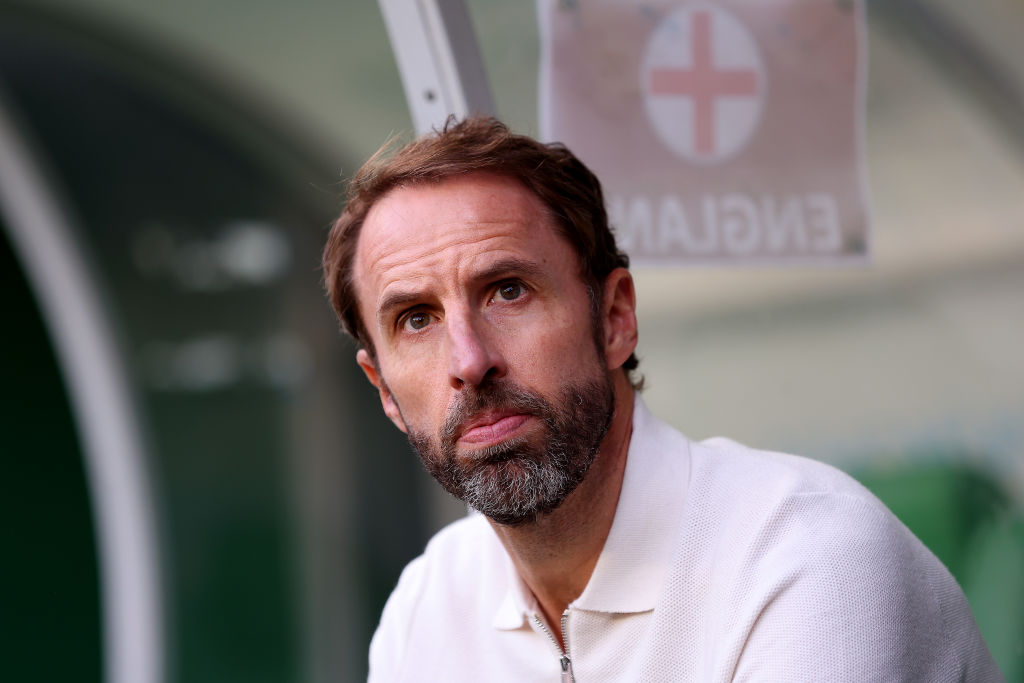Gareth Southgate’s recent heartfelt plea on behalf of young men in his Richard Dimbleby Lecture paints a sorrowful picture. Young men, the former England manager suggested, are isolated and withdrawn. They are seduced by gaming, pornography, and gambling, and are prey to “callous, manipulative and toxic influencers”.
As they grapple with masculinity itself and their “broader place” in society, as well as the decline of real-world communities and mentors, Southgate claimed that young men need not only better role models but different measures of success. Real success, Southgate says, is the ability to look back and say: “I gave my best, I stayed true to myself, and I made a difference.” All very nice, but he needs to go much deeper than these lifestyle-tier platitudes. There’s no “self” to be true to without values, and values are relational and social: for young men to flourish, they need a world in which masculinity itself is tied to the good, and where being a good son, brother, husband, friend, worker and father is both possible and encouraged.
As for the problem of influencers, Southgate, like the recent hit show Adolescence, over-eggs it. Most masculinist influencers promote objectively healthy behaviour, such as staying fit, eating well and starting a family — Andrew Tate is an outlier even in the “manosphere”. Recent Tate posts on X include jokes about crimes he and his brother stand accused of: “I am sick and tired of every hot girl in the world coming up to me begging to be human trafficked I HAVE RETIRED!!!!!!!!!!” Most men do not wish to be (alleged) human traffickers, nor pimps, nor possess a harem. One pleasant woman with the possibility of a family will be more than sufficient.
Southgate is correct, of course, that character matters a great deal, but what matters more than silly men making money from unpleasant videos online is the context in which concepts such as “character” make sense. The ancient Greeks, for example, thought of character as an imprint on the soul, a kind of social training. In a country where almost one in five (and in the States, one in four) children grow up without a father at home, how are young men to develop the moral and social character they need to be good men?
Coupled with an economy that values service and post-industrial labour, and gives jobs to whoever can be paid the least, not to mention a culture which treats young white men as abject, it’s not surprising that some retreat into virtual or fantasy worlds in which they are not painted as the source of all evil. For good character to make sense, there would have to be meaningful roles for young men in the real world. There is little point in striving to improve if there is no work, no recognition, and little hope of marriage and a family. Character-formation is a social and material process, not a one-off decision or an identity.
Liberal individualism, and the sexual revolution in particular, promoted selfishness over duty, desire over fidelity, and pretended that men and women were far more alike than they actually ever could be. The cad — the man for whom consequences were irrelevant — triumphed, but at great cost to sons, daughters and wives everywhere. Many young men know this, and are seeking — in increasing numbers, through church attendance, self-discipline and a refusal to emulate the worst excesses of postwar culture — to avoid the traps and lures of a hedonic life.
Young men, like all of us, will make mistakes, and Southgate is right that not everyone will be a winner according to worldly values, but blaming social influencers is shallow when the rot goes much deeper. Restoring dignity to masculinity requires, among other things, positively revaluing fatherhood and celebrating virtue. Character can only flourish in a context in which there is meaning, social roles, recognition — and a future for young men beyond being the object of scorn.










Join the discussion
Join like minded readers that support our journalism by becoming a paid subscriber
To join the discussion in the comments, become a paid subscriber.
Join like minded readers that support our journalism, read unlimited articles and enjoy other subscriber-only benefits.
Subscribe